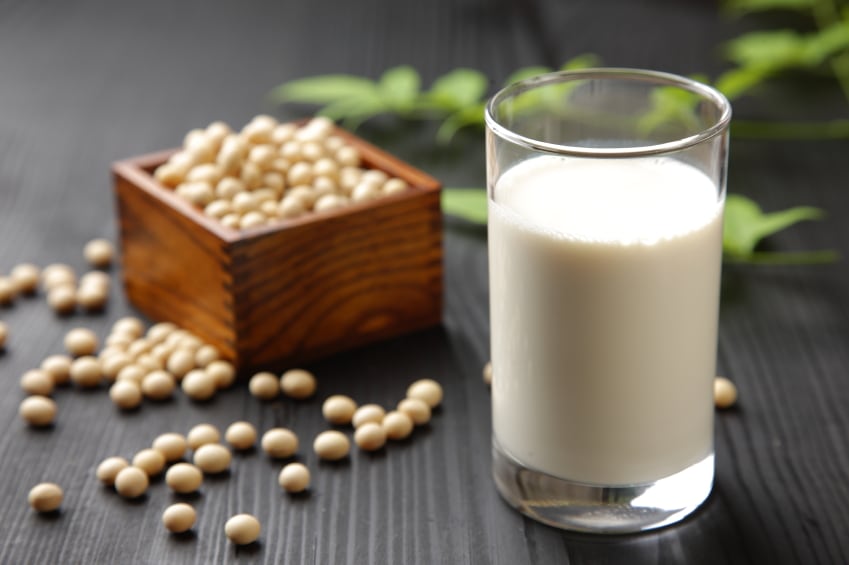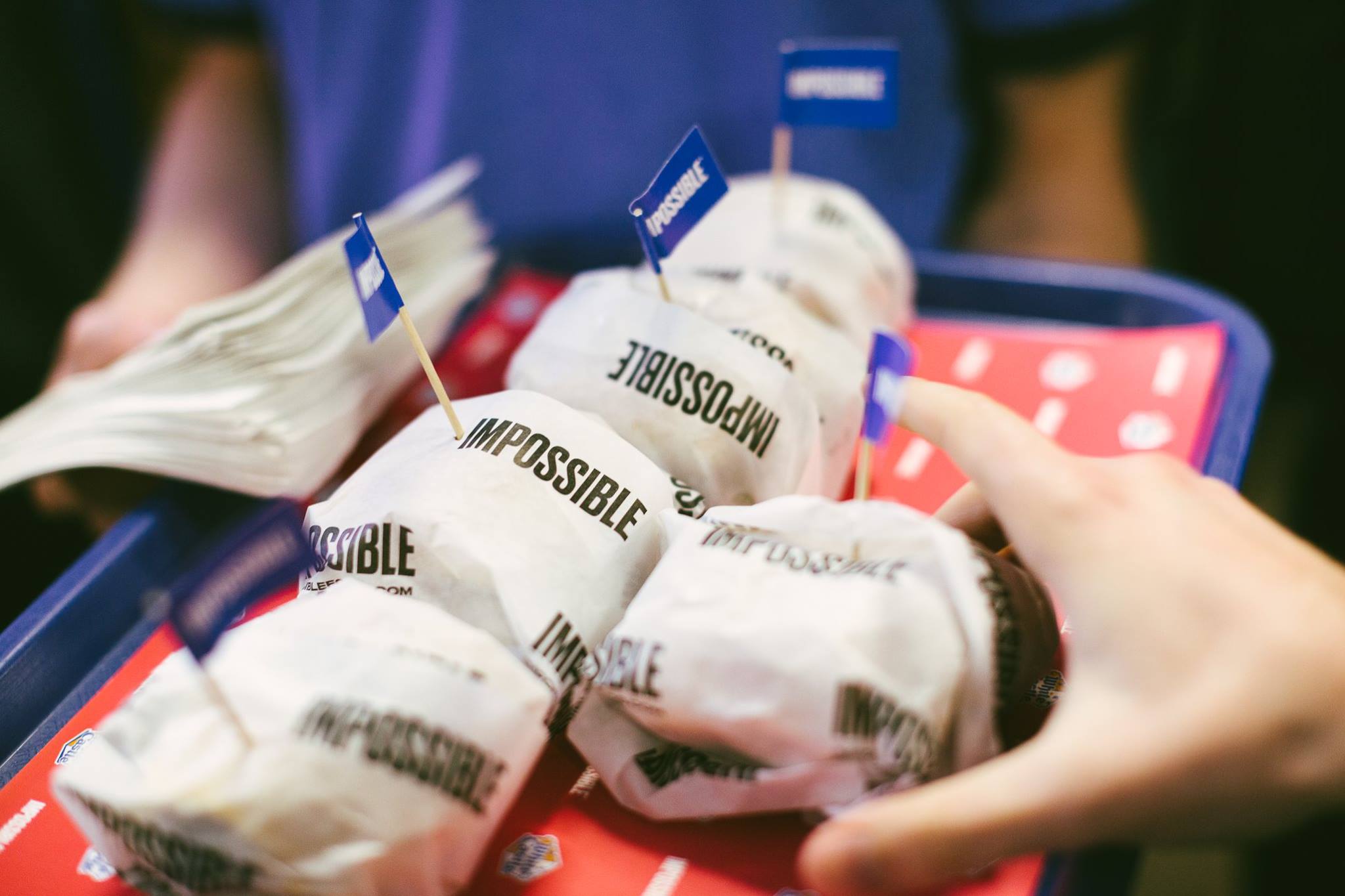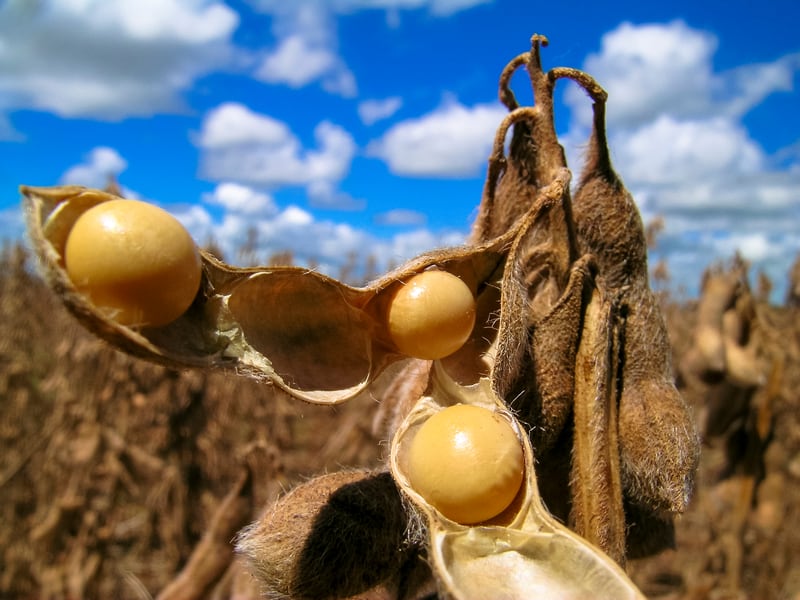Alpro’s site at Issenheim, France, is impressive. It runs 24 hours a day, 363 days a year, turning soybeans into products fit to feed consumers’ appetite for plant-based drinks and foods. Indeed, as we walk around the factory, between tanks holding 80 tonnes of soy “juice”, it isn’t the scale that strikes me – it’s the empty space. Room for growth, perhaps?
The global market for plant-based milk is set to surpass $16bn (€14bn), according to Innova Market Insights. Grand View Research, meanwhile, has forecast that the dairy alternatives market (including drinks, cheese, ice-cream and yoghurt) could be worth $35bn (€30.6bn) by 2024. The UK’s Office for National Statistics has even added non-dairy milk as a subsection of mainstream goods in its consumer-price index. As the Economist put it recently: “Plant-based milks are booming as consumers seek to eliminate dairy from their cereal bowls and coffee cups, mostly for health, welfare or environmental reasons.”
However, stories have started to emerge that all is not quite so rosy in this supposedly sustainable category. Soy, for example, has been linked with deforestation in Brazil and Argentina – countries Europe leans heavily on for supplies. Though the problems have been driven by the world’s demand for soy to feed livestock, questions are inevitably now being asked of brands that use the beans in their products. Where does the soy come from? Is it grown on deforested land in Latin America? Has it been genetically modified?
Alpro is one of the brands that has answers for all of these questions, and yet has done very little to tell people about it. Foodnavigator was invited to France to find out more.
Keeping commodities close
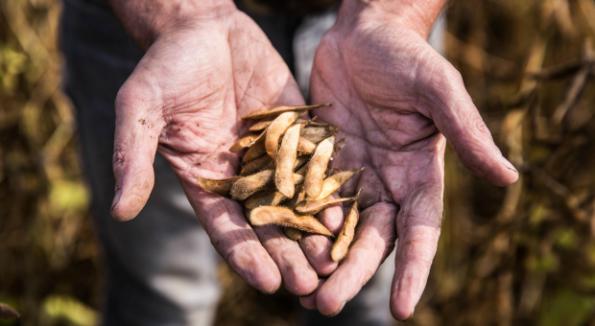
At the last count, in 2017, 60% of the soybeans Alpro used were sourced in Europe (the target was 50%). The other 40% came from Canada. Here in Issenheim, 100% of the beans have been sourced within a 50km radius since 2009. “[By doing that] we shorten the supply chain and limit the transport footprint,” explained Greet Vanderhayden, sustainability manager at Alpro. “We also secure availability of non-GM soy.”
Indeed, traceability is crucial. Alpro, which is owned by Danone, only buys direct from farmers rather than on the open market. This means every product can be traced back to the seed. Of course, such traceability comes at a premium – 30% versus the non-GM equivalent on the open market. Explaining that to a buyer at Tesco, for example, isn’t always easy. However, there is an increasingly strong argument for shortening the soy supply chain – and not just because there are reputational risks if the source is linked to deforestation.
Look at some of the major suppliers that Europe relies on – like Brazil and the US – and political instability adds a further cause for concern. China’s insatiable appetite for meat has also seen it hoover up an increasingly large chunk of global supply of soy feed. Demand from Asia will only grow. This means Alpro’s move to source locally is an astute one – and the premium is worth paying. “We are small … we have to position on quality,” said one of the producers supplying the Issenheim factory.
Indeed, France produced 250,000 acres of soy last year; Brazil’s cropping area this year is expected to reach 89.65 million acres. However, the beans produced here are of high quality, with Alpro working with its suppliers to improve quality year on year. Dozens of new varieties are being tested – with 10,000 in all, it takes time, money and patience to find the right ones. Cultivation is being expanded, too, with 800 tonnes coming from the Netherlands in 2017. Protein levels were up, with a crop of 1,000 tonnes expected from last year’s harvest. In Belgium things are a little trickier – the quality and protein levels aren’t quite there yet – but research has suggested that “if all factors evolve favourably […] soy cultivation can grow into the sixth most important arable crop in Flanders”.
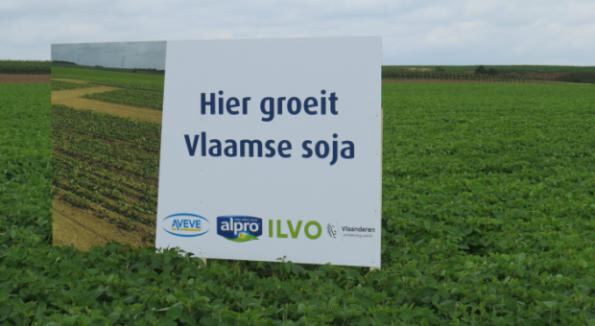
Paying the price
There is growing recognition that soy could well be an economically and environmentally important crop for Europe. As the European Soya Declaration, signed by 14 member states in 2017, noted: “Large areas are cultivated with wheat, maize, oilseed rape and sunflower in simple cropping systems that lack diversity. Including legumes [like soybean] in these cropping systems strengthens local economies, increases local and regional protein self-sufficiency and supports protein partnerships.”
The farmers near Issenheim say that with soy there’s “no need to add nitrogen”, and the following crop requires “15% less nitrogen”. One says: “The price [we get] is recognition of what we do [but] people don’t always want to pay – they think food is all the same.” Perhaps Alpro needs to start marketing its ethical credentials more forcefully?
There is a good story to tell – of farmers, local communities and sustainable production (all messages that the dairy sector has long used to its advantage). The first aim was to go mainstream, and there was a feeling that talking about low carbon footprints, reduced water consumption and local soybeans wasn’t the way to do it.
However, Danone, recently announced that it would be unveiling plant-based versions of its key brands as it set about tripling its worldwide plant-based sales to €5bn by 2025. That will inevitably put the spotlight on the environmental impacts of dairy versus non-dairy options. Could this be chance for Alpro to wear its green credentials on its cartons?

